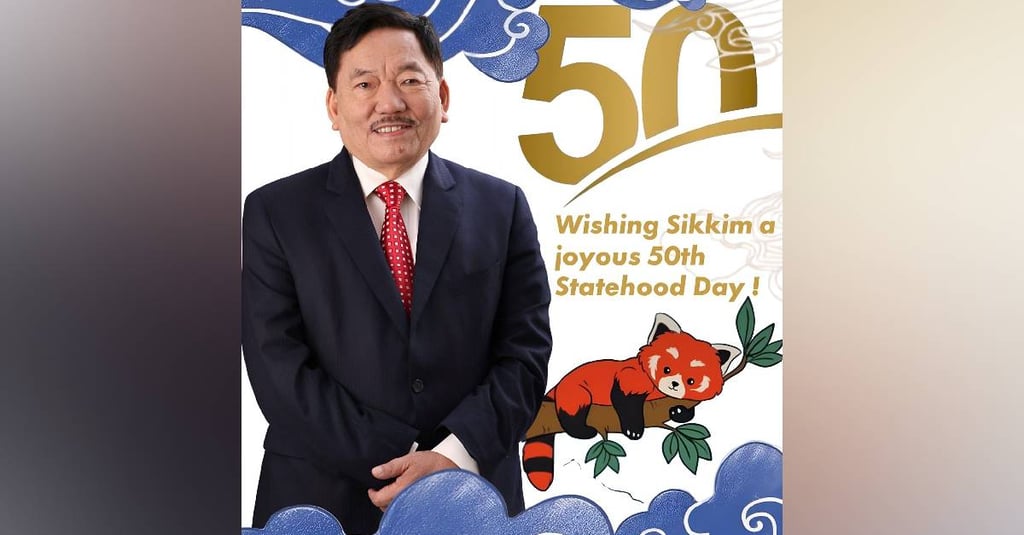We must protect our democracy and prepare for the next 50 years, says Pawan Chamling on 50th Statehood Day
As he looked to the future, Chamling raised questions about how to protect Sikkim’s heritage while ensuring economic growth.
LOCAL


On the golden jubilee of Sikkim’s statehood, former Chief Minister and Sikkim Democratic Front (SDF) President Pawan Chamling extended his wishes to the people of the state and offered a detailed reflection on Sikkim’s progress since it became the 22nd state of India in 1975.
Chamling recalled the historic decision taken by the people of Sikkim to join India and embrace democracy. He praised the leadership of L.D. Kazi and other visionaries who played a key role in shaping modern Sikkim. "It was a proud moment when we, the people of Sikkim, became Indian citizens. Our choice to become a democratic state was a big step that showed our belief in nationalism and unity," he said.
Looking back at his 25 years as Chief Minister, Chamling highlighted the many achievements under the SDF government. He pointed out that poverty was reduced significantly; from over 41% in 1993 to just 3% by 2019. He said the World Bank recognized this as one of the fastest reductions in poverty since World War II. He also mentioned that basic services like water, electricity, and roads were provided to all areas, and that Sikkim became free of kutcha houses. Health services were made free, and minimum needs of citizens were fulfilled, he added.
On education, Chamling said the state made great progress. Free education was introduced, universities were set up, and literacy rates rose, making Sikkim the third most literate state in India. Life expectancy also improved from 62.7 years in 1990 to over 73 years by 2016.
Chamling also stressed the importance of social justice. He noted that his government worked hard to support the Limbu and Tamang communities, secured 50% reservation for women in Panchayats, and ensured that rural areas received 70% of the state’s budget. He proudly said that Sikkim became a model for equality and inclusion.
Sikkim’s environmental achievements were also mentioned. Chamling said the state adopted a green development model and became the world’s first fully organic state, winning international recognition. He added that Sikkim was declared a “Nirmal Rajya” in 2008 for its sanitation and cleanliness.
Chamling pointed out that Sikkim also became a hub for industries like pharmaceuticals and hydropower. He said the state became the second-largest producer of medicines in India and remained income tax-free. He credited the government’s policies for boosting tourism, with Lonely Planet naming Sikkim one of the top destinations in 2014. He also spoke about the reopening of the Nathula trade route and its impact on commerce and pilgrimage.
However, Chamling also expressed concern about rising social issues such as suicide, depression, drug abuse, and political unrest. He said these problems need urgent attention and called for unity among the people to face them together. "We must remain united, compassionate, and responsible," he urged.
As he looked to the future, Chamling raised questions about how to protect Sikkim’s heritage while ensuring economic growth. He expressed concern over the state’s declining birth rate and rising population influx. He emphasized the need to protect Article 371F and preserve Sikkim’s special identity and rights.
He also warned of larger challenges, like climate change, citing the 2023 GLOF disaster that caused many deaths. He said Sikkim must be prepared for geopolitical risks, especially given its sensitive border location.
Chamling said the 50th anniversary is a moment to celebrate but also to reflect. “We have achieved a lot in 50 years because we are a part of India,” he said. “Now, we must take responsibility, work hard, and aim high. We must protect our democracy and prepare for the next 50 years with unity and determination.”
